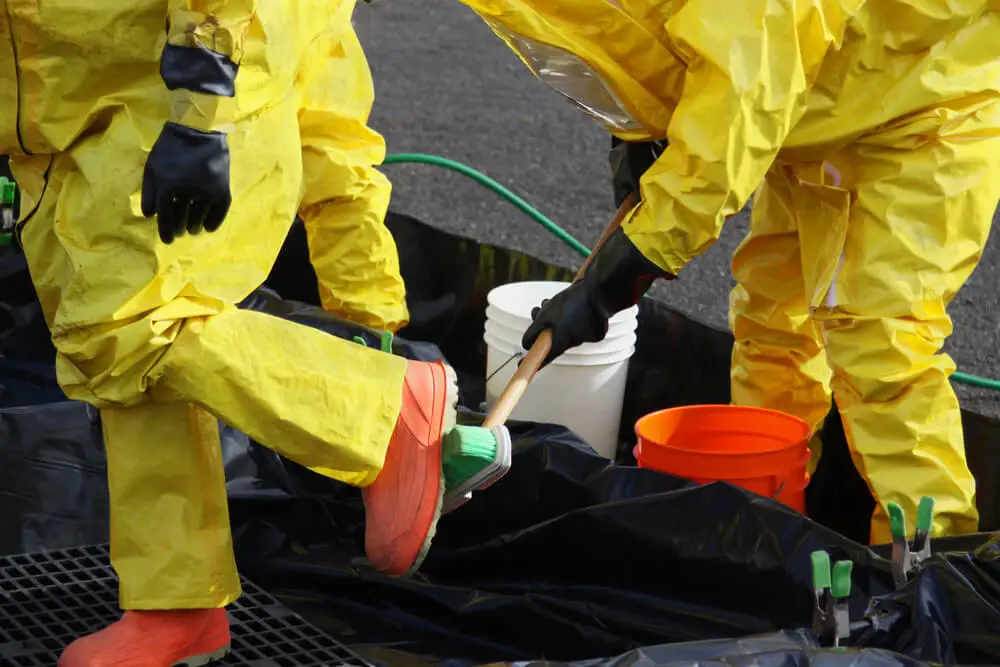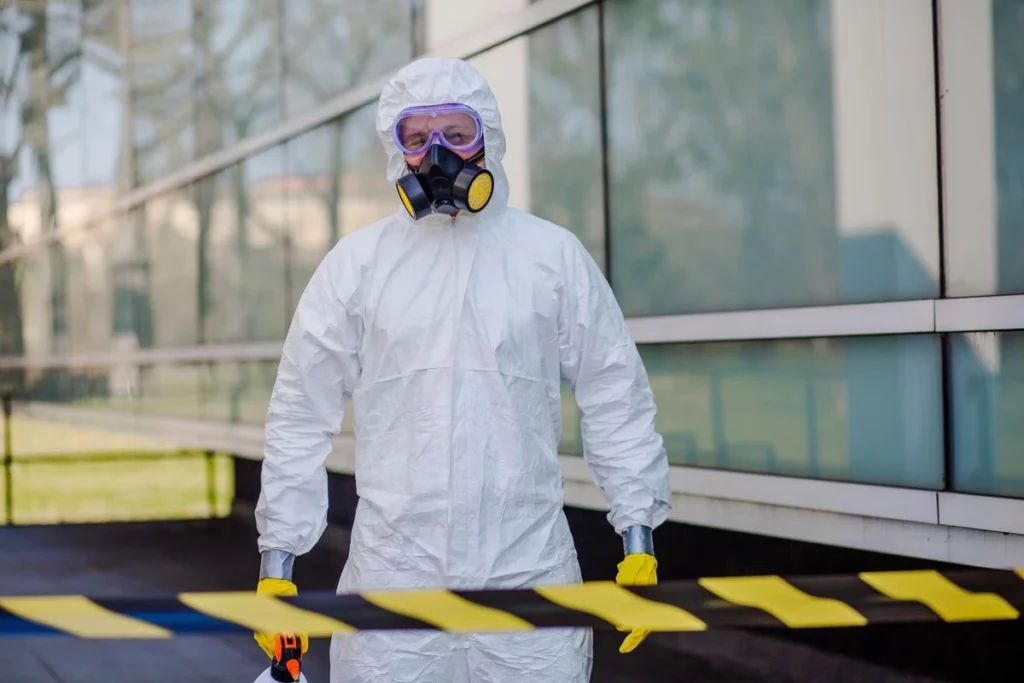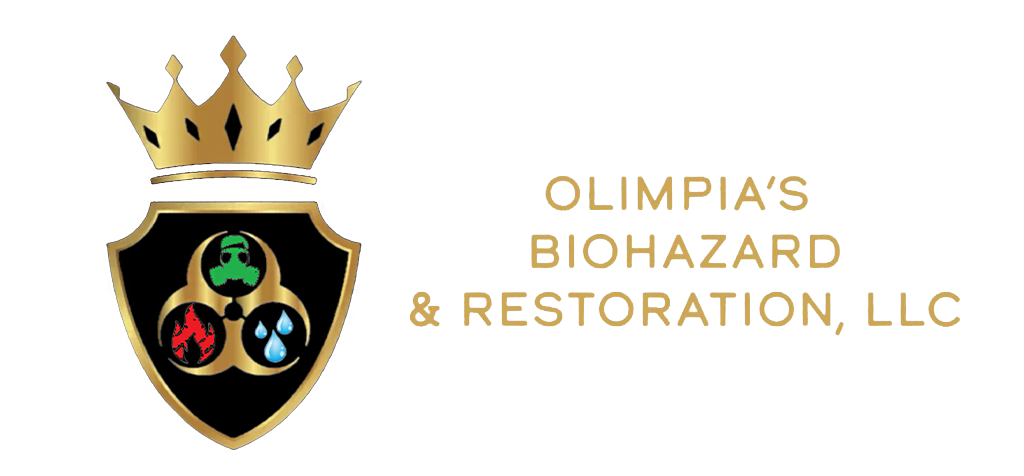Cleaning up a crime scene is a crucial but often overlooked aspect of dealing with criminal incidents. In Portland, like in many other places, there are legal aspects that govern the cleanup process. It’s not just about tidying up; there are regulations, safety measures, and ethical considerations at play. Understanding these legal aspects is vital for both the professionals tasked with the cleanup and the individuals affected by the crime. In this conversation, Olimpia’s and Biohazard will delve into the legal nuances of crime scene cleanup in Portland, shedding light on what you need to know when it comes to handling the aftermath of criminal incidents in a lawful and compassionate manner.
State Regulations:
let’s discuss state regulations in a conversational tone. When it comes to crime scene cleanup in Portland, you’ll want to pay close attention to the state regulations. These are the rules and guidelines set forth by the state of Oregon that dictate how crime scene cleanup should be conducted. Oregon has specific laws and regulations that apply to crime scene cleanup, and these regulations are designed to ensure that cleanup is done safely, professionally, and in a way that doesn’t pose health risks to the public or the environment. These laws cover everything from the handling and disposal of biohazardous materials, such as blood and bodily fluids, to the licensing and certification requirements for cleanup companies. In essence, these regulations are in place to protect both the cleanup crews and the community at large. They outline the standards that must be met to minimize the risk of exposure to potentially harmful pathogens and to maintain the highest levels of safety and professionalism in what can often be very sensitive and challenging situations.
Licensing and Certification:
understanding the role of crime scene cleanup is crucial in recognizing the significance of licensing and certification in this field. When it comes to crime scene cleanup services in Portland, licensing and certification are like the backbone of the industry. They play a pivotal role in ensuring the safety and well-being of both the cleanup crews and the general public. In essence, these licenses and certifications act as a kind of quality assurance and safety net. They’re not just pieces of paper; they represent a commitment to professionalism and expertise. When a company holds these qualifications, it demonstrates that they’ve undergone rigorous training and met the standards set by the appropriate authorities. Crime scenes can be filled with hazardous materials, including blood and other bodily fluids. Handling these materials improperly can pose serious health risks, so it’s imperative that the cleanup crews are well-prepared and qualified. That’s where licensing and certification come into play. They ensure that the individuals tasked with this challenging work have the necessary knowledge and skills to do it safely and effectively.


Biohazard Handling:
Biohazard handling in a conversational tone. When it comes to crime scene cleanup in Portland, one of the most critical aspects is the proper handling of biohazards. Biohazards include substances like blood, bodily fluids, and tissues, which can carry pathogens and pose health risks. Oregon, like many states, has strict regulations governing the handling and disposal of biohazardous materials. It’s not just about cleaning up; it’s about doing so in a way that minimizes the risk of infection and contamination. Crime scene cleanup professionals are trained to use specialized equipment and follow meticulous protocols to ensure the safe and thorough removal of these biohazards.
Environmental Laws:
- Waste Disposal Regulations: Crime scene cleanup often involves handling and disposing of biohazardous materials, and this must be done in compliance with Oregon’s waste disposal laws.
- Transportation Regulations: When transporting biohazardous waste from a crime scene to a disposal facility, you must follow specific regulations to ensure safe and lawful transportation.
- Hazardous Materials Handling: Beyond biohazards, some crime scenes may involve other hazardous materials or chemicals that must be managed in accordance with environmental laws.
- Chemical Cleanup Protocols: If hazardous chemicals are involved, cleanup must adhere to environmental safety protocols to prevent soil or water contamination.
- EPA Regulations: Keep an eye on federal Environmental Protection Agency (EPA) regulations, as they may also apply to certain aspects of crime scene cleanup, particularly when dealing with hazardous materials.
- Record Keeping: Accurate record-keeping of waste disposal and cleanup procedures is essential to demonstrate compliance with environmental laws.
Worker Safety:
Worker safety in a conversational tone. When it comes to crime scene cleanup in Portland, the safety of the cleanup crew members is paramount. This isn’t your typical cleaning job; it often involves dealing with biohazardous materials and emotionally charged situations, which can be physically and mentally challenging. To ensure worker safety, companies involved in crime scene cleanup are typically required to provide comprehensive safety training. This training covers not only the technical aspects of the job but also emphasizes the importance of using personal protective equipment (PPE), like gloves, masks, and suits. It’s all about minimizing the risk of exposure to potentially harmful pathogens and maintaining the well-being of the crew.
Insurance and Liability:
Choosing a reliable crime scene cleanup service goes hand in hand with understanding the importance of insurance and liability in this line of work. In the realm of crime scene cleanup in Portland, having the right insurance coverage is absolutely critical. It’s like a safety net that catches you when the unexpected happens. Crime scene cleanup is inherently risky and often filled with unpredictable situations. That’s where insurance steps in as a guardian angel of sorts. Reputable crime scene cleanup companies typically carry insurance that covers two key areas: general liability and workers’ compensation. First off, there’s general liability insurance. This insurance is a safeguard against potential legal claims that could arise from property damage or bodily injuries that might occur during cleanup operations. It’s a way of ensuring that if something unexpected does happen, there’s a financial safety net in place to address it. Then there’s workers’ compensation insurance. This one’s essential for the cleanup crews. It provides financial support to employees in case they get injured on the job. It’s not just about the company protecting itself; it’s about taking care of the people who do the challenging work of crime scene cleanup. Now, for those in need of cleanup services, the message is clear: always ensure that the company you hire has adequate insurance coverage. It’s not just about ticking off a box on a checklist; it’s about your safety and peace of mind. Knowing that the company is properly insured means you won’t be held liable for any accidents or mishaps that may happen during the cleanup process. So, in a nutshell, when it comes to crime scene cleanup in Portland, reliable service and proper insurance coverage are inseparable partners in ensuring a safe and worry-free experience.


Privacy Laws:
Privacy laws in a conversational tone. When dealing with crime scene cleanup in Portland, it’s not just about the physical cleanup; it’s also important to respect the privacy of individuals affected by the crime. Privacy laws play a significant role in this regard. Oregon, like many other states, has stringent privacy laws that govern how personal information and sensitive details related to a crime should be handled. This includes everything from medical records to any personal effects that might be found at the scene. Crime scene cleanup professionals must be aware of and adhere to these laws to ensure that they don’t inadvertently violate the privacy rights of those involved. Unauthorized disclosure of sensitive information can lead to legal consequences, including potential lawsuits.
Ethical Considerations:
- Compassion and Sensitivity: Crime scene cleanup often involves traumatic situations. Maintaining a high level of compassion and sensitivity toward the victims and their families is crucial. It’s not just a job; it’s about offering support during a difficult time.
- Respect for the Deceased: Show respect for the deceased by handling their remains with care and dignity. This includes following cultural or religious customs, if applicable.
- Privacy and Confidentiality: Protect the privacy and confidentiality of those involved in the incident. Avoid discussing details of the case outside of the necessary professional channels.
- Transparency: Be honest and transparent with clients about the scope of work, costs, and potential challenges. Building trust is essential.
- Environmental Responsibility: Dispose of waste responsibly, following environmental regulations. This demonstrates a commitment to both legal and ethical standards.
- Professionalism: Maintain professionalism in all interactions, from the initial contact with clients to the completion of the cleanup. This includes punctuality, clear communication, and a dedication to the task at hand.
- Emotional Support: Recognize the emotional toll that crime scene cleanup can take on your team. Provide support and resources to help them cope with the psychological challenges of the job.
- Community Impact: Consider the impact of your work on the local community. Crime scenes can have a profound effect on neighborhoods, so approach the cleanup with the community’s well-being in mind.
- Continuous Training: Stay updated on industry best practices and new technologies to ensure that you’re providing the best possible service in a constantly evolving field.
- Legal Compliance: Finally, ethical considerations go hand-in-hand with legal compliance. By adhering to both ethical and legal standards, you can ensure that your crime scene cleanup services are conducted with integrity and empathy.
Documentation:
Documentation in a conversational tone. In the realm of crime scene cleanup in Portland, meticulous documentation is a cornerstone of the process. It’s not just about cleaning up; it’s about keeping a thorough record of every step taken. Documenting the cleanup involves creating detailed reports, taking photographs, and keeping clear records of all materials removed and disposed of. This documentation serves several crucial purposes: Firstly, it helps maintain transparency and accountability. Clients and authorities can review these records to ensure that the cleanup was conducted properly, following all legal and ethical standards. Secondly, it can be invaluable in case of legal disputes or insurance claims. If questions arise about the cleanup process, having comprehensive documentation can provide evidence to support your actions. Lastly, it’s essential for maintaining a professional standard. It showcases that the cleanup was carried out meticulously and with attention to detail, which is not only legally required but also a testament to the professionalism and integrity of the cleanup team.


FAQ’s:
What are the dangers of crime scene cleanup?
The dangers of crime scene cleanup include exposure to biohazards, risk of infection, psychological trauma, and potential legal liability.
What chemical is used to clean up crime scenes?
A common chemical used in crime scene cleanup is a bleach solution (sodium hypochlorite) to disinfect and sanitize affected areas.
What kind of people clean up crime scenes?
Crime scene cleanup is typically performed by trained professionals who specialize in biohazard cleaning, including technicians from dedicated crime scene cleanup companies.
Where do crime scene cleaners make the most money?
Crime scene cleaners tend to earn higher salaries in metropolitan areas with a higher cost of living, such as major cities in the United States like New York, Los Angeles, or Chicago.
What is the highest crime scene cleaner salary?
The highest crime scene cleaner salaries can reach up to six figures annually, depending on factors like experience, location, and the complexity of the job.
CONCLUSION:
In conclusion, understanding the legal aspects of crime scene cleanup in Portland is essential for anyone involved in this field, whether as a professional or someone in need of these services. We’ve explored various facets of the legal framework, from state regulations to licensing, biohazard handling, environmental laws, worker safety, and ethical considerations. Furthermore, we’ve emphasized the importance of documentation, privacy laws, and insurance. By adhering to these legal standards, not only can we ensure compliance with the law, but we can also approach the sensitive task of crime scene cleanup with the care, empathy, and professionalism it demands, while safeguarding the well-being of all parties involved.
